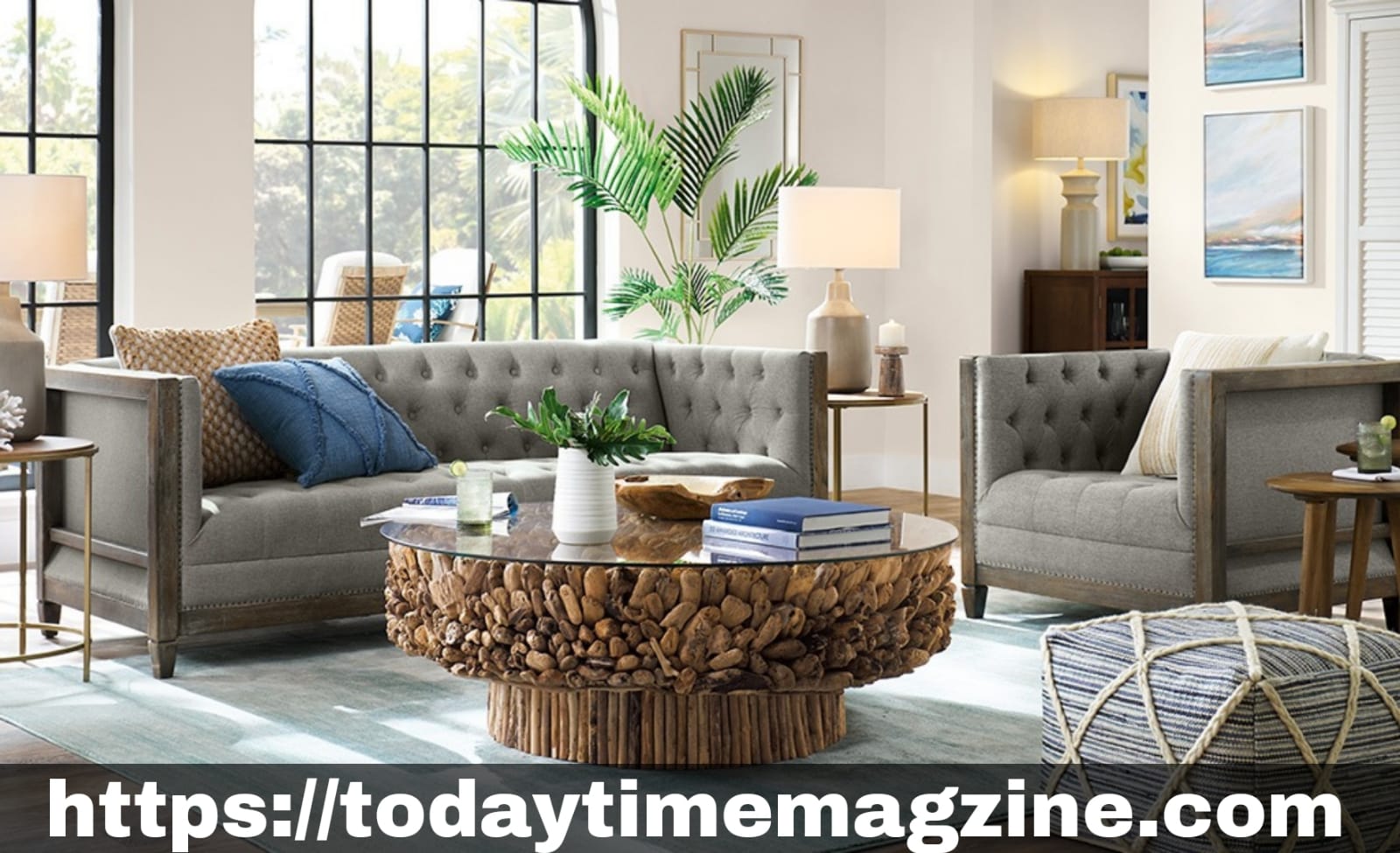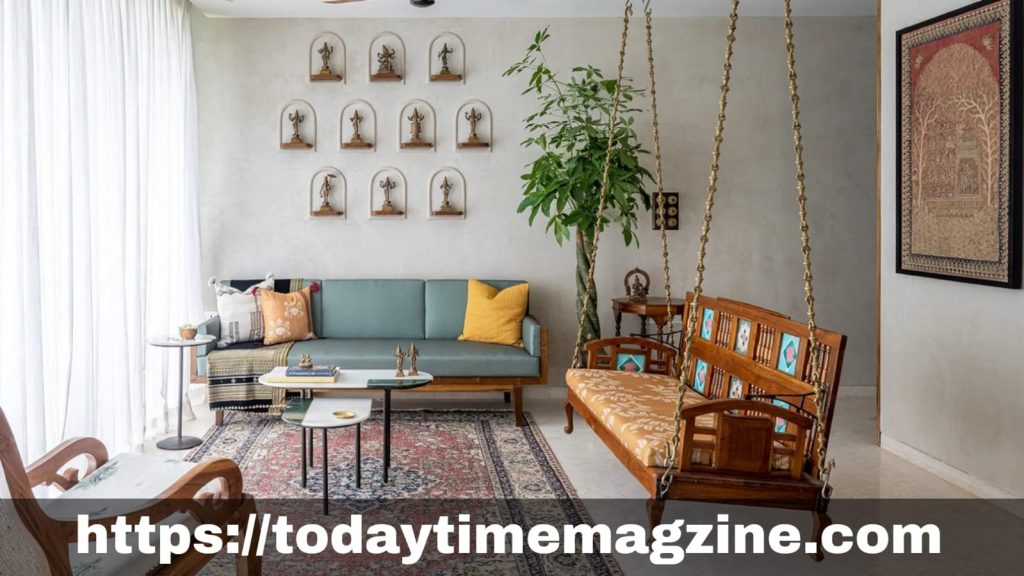
Functional Elegance: Redefining Spaces with Thoughtful Furniture Design
In the realm of interior design, the synergy between functionality and aesthetics plays a pivotal role in creating spaces that are not only visually appealing but also serve a purpose. Furniture, as the cornerstone of interior design, becomes the key element in achieving this delicate balance. This article delves into the concept of functional elegance and how thoughtful furniture design can redefine and elevate spaces.
The Intersection of Form and Function:
Functional elegance is not a mere juxtaposition of beauty and utility; rather, it is the seamless integration of the two. Furniture design that embodies functional elegance marries form and function, creating pieces that are not only visually striking but also purposeful in their design.
In a world where space is a premium, the Furniture of furniture that serves multiple functions cannot be overstated. Thoughtful furniture design goes beyond aesthetics, considering the spatial constraints and the lifestyle of the inhabitants. From multifunctional storage solutions to convertible furniture pieces, designers are reimagining the traditional notions of form and function, offering innovative solutions for modern living.
Practicality Meets Aesthetics:

Gone are the days when furniture was solely designed for practicality, often sacrificing aesthetics. Today’s designers are embracing the challenge of creating pieces that seamlessly blend practicality with aesthetics, resulting in furniture that enhances both the visual appeal and functionality of a space.
For example, a coffee table is no longer just a surface to place cups; it becomes a sculptural piece that anchors the living room, a functional artwork that invites conversation. Thoughtful furniture design understands the importance of making a statement while serving a purpose, transforming ordinary spaces into extraordinary ones.
The Rise of Sustainable Design:
In the age of environmental consciousness, thoughtful furniture design extends beyond mere aesthetics and function; it embraces sustainability. The materials used, the manufacturing processes employed, and the lifecycle of the furniture are all considered in the quest for creating pieces that not only enhance spaces but also contribute to a greener, more sustainable future.
Sustainable furniture design involves using eco-friendly materials, reducing waste, and promoting ethical manufacturing practices. From reclaimed wood to recycled materials, designers are exploring innovative ways to create furniture that not only stands the test of time in terms of design but also minimizes its impact on the environment.
Customization and Personalization:
One size fits all is no longer the norm in furniture design. Thoughtful designers understand the diversity of individual tastes and lifestyles, leading to a surge in customizable and personalized furniture solutions. This trend allows individuals to actively participate in the design process, ensuring that the furniture not only complements their space but also aligns with their personal style and preferences.
Customizable furniture goes beyond choosing colors or fabrics; it extends to the very structure and functionality of the piece. From modular sofas that can be rearranged to fit different spaces to personalized storage solutions that cater to specific needs, customization is at the forefront of thoughtful furniture design.
The Impact on Residential Spaces:

In residential spaces, where comfort and functionality are paramount, the influence of functional elegance is particularly profound. Thoughtful furniture design transforms living rooms into multifunctional hubs, bedrooms into serene sanctuaries, and kitchens into efficient workspaces.
Take the example of a sofa that incorporates charging ports and built-in storage or a dining table that doubles as a workspace. These are not just furniture pieces; they are solutions that address the evolving needs of modern living. As homes continue to serve multiple purposes, from offices to gyms, thoughtful furniture design adapts to these changing dynamics, ensuring that spaces remain not only beautiful but also highly functional.
The Commercial Landscape:
The impact of functional elegance is not limited to residential spaces. In the commercial landscape, where the design is a reflection of Furniture identity and culture, thoughtful furniture design plays a crucial role. Offices are no longer characterized by sterile, generic cubicles; instead, they feature collaborative workspaces, comfortable lounges, and flexible furniture arrangements that foster creativity and productivity.
In hospitality, hotels and restaurants are embracing the concept of functional elegance to create memorable guest experiences. From lobby furniture that welcomes guests with both comfort and style to restaurant seating that enhances the dining atmosphere, thoughtful design is reshaping the hospitality landscape.
Challenges and Opportunities:
While the concept of functional elegance has opened new avenues for innovation in furniture design, it also presents challenges. Balancing the need for functionality with a commitment to aesthetics requires a deep understanding of materials, ergonomics, and design principles. Moreover, the constant evolution of technology and changing lifestyle trends necessitate adaptability and a forward-thinking approach.
However, these challenges also bring opportunities for designers to push boundaries and redefine conventional norms. The fusion of technology with furniture design, such as smart furniture that incorporates IoT (Internet of Things) elements, exemplifies how the industry can embrace innovation to create truly transformative pieces.
Conclusion:
Functional elegance in furniture design represents a paradigm shift in how we perceive and interact with our living and working spaces. It is an acknowledgment that furniture is not just a functional necessity but a form of expression that contributes to the overall ambiance of a space. Thoughtful furniture design, with its emphasis on form, function, sustainability, and personalization, has the power to redefine spaces, making them more livable, aesthetically pleasing, and aligned with the needs of contemporary living. As we continue to navigate the complexities of modern life, the marriage of functional elegance and furniture design stands as a testament to the evolving relationship between people and their environments.
